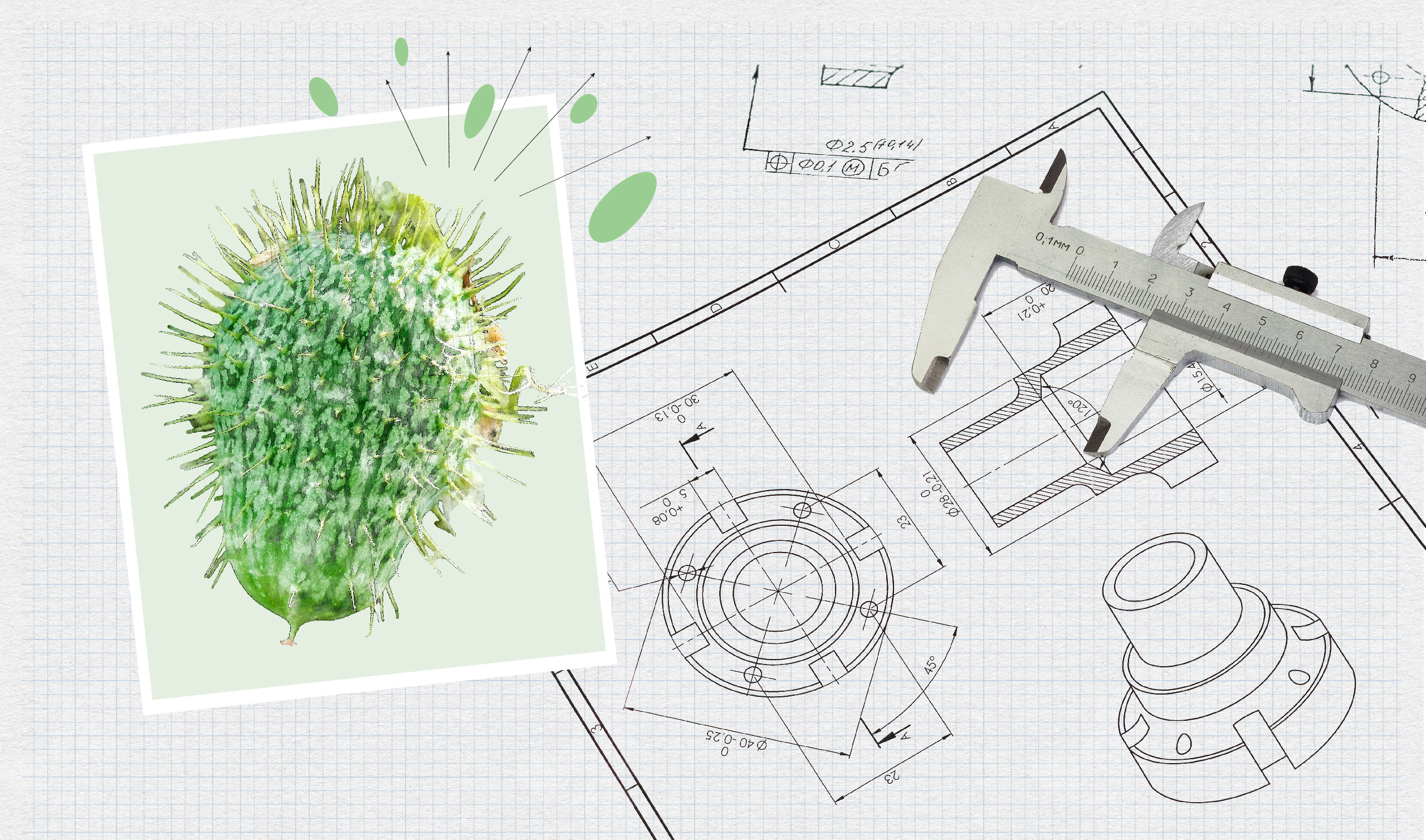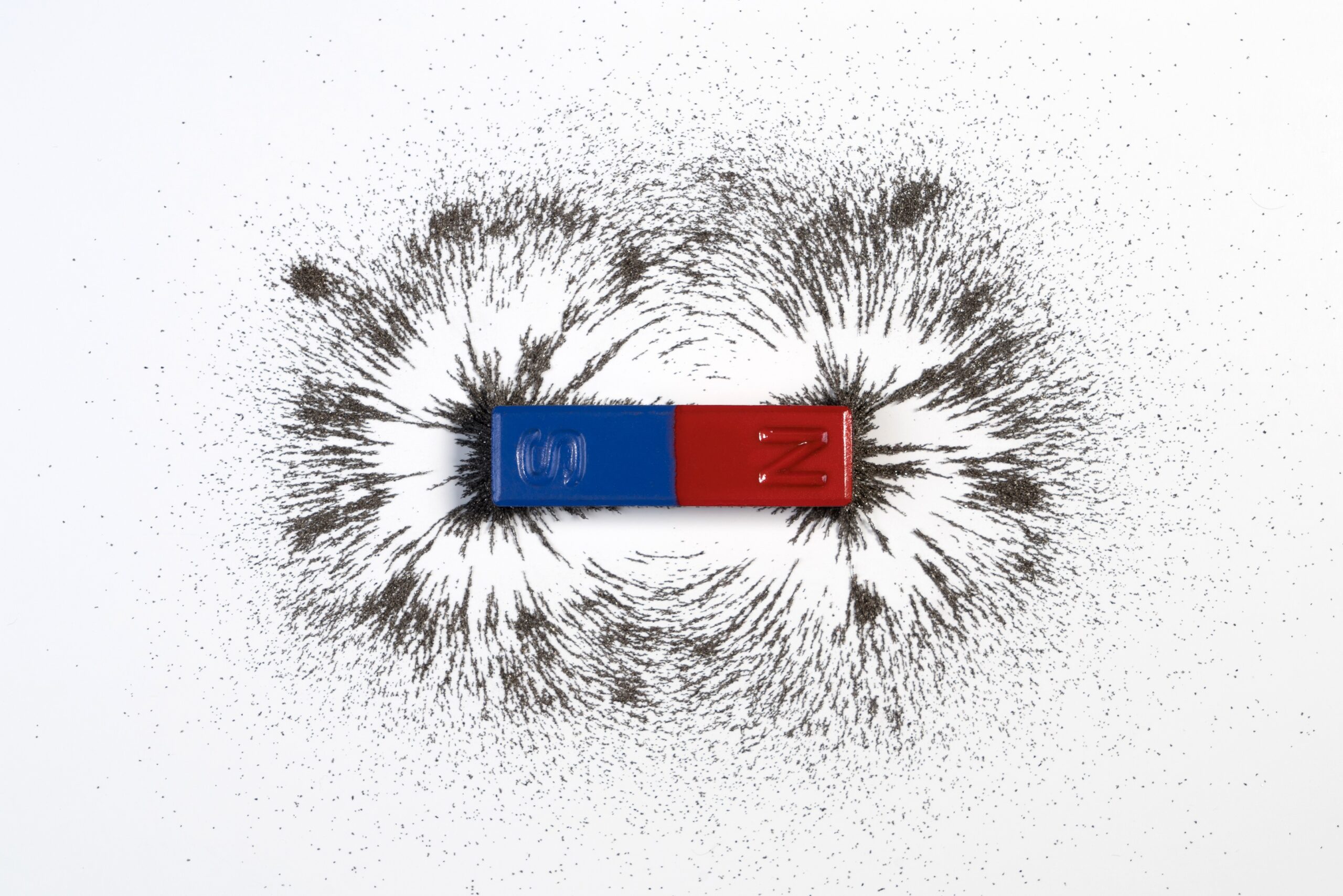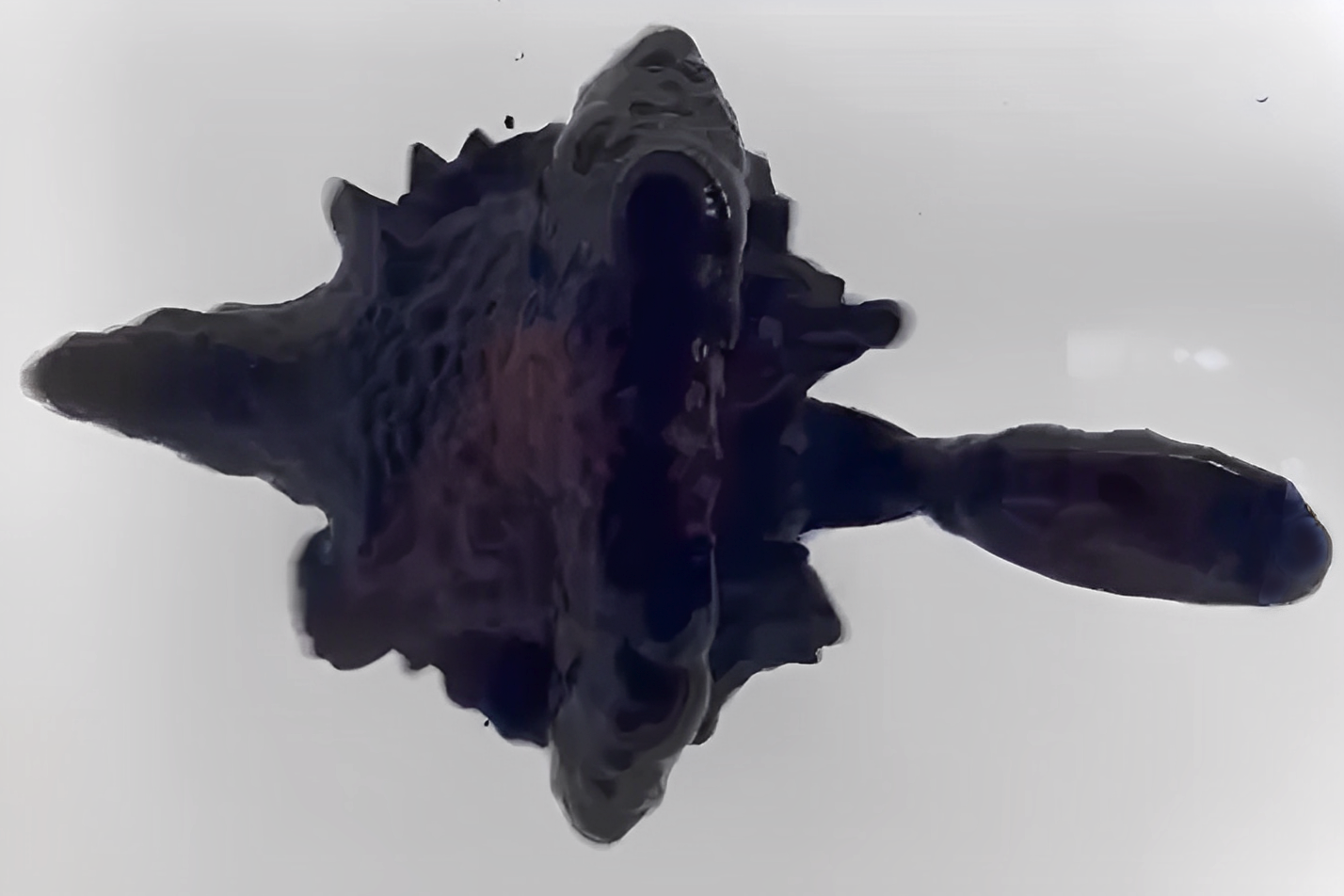English
繁體中文
简体中文

Don’t mistakenly regard this tiny wriggler as a blood worm – it is a revolutionary microrobot, crafted from a patient’s own blood cells and finer than a human hair, designed to navigate through the brain’s complex neural labyrinth with astonishing precision. Far from a sci-fi creature, CUHK’s innovative microrobots don’t just move – they slither, swim and crawl under magnetic control, hunting down cancer cells like guided missiles. Remotely steered by external magnetic fields, they deliver targeted therapy to brain tumours once considered untreatable, offering new hope where conventional methods fall short.

Plants stretch toward sunlight in photosynthesis, their leaves curving to seize every beam. A CUHK team has harnessed this dance with light to shape soft, magnetic materials. Their revolutionary technology using lasers and magnets—precisely calibrating light intensity during 3D printing—transforms a flat magnetic hydrogel into a dynamic 3D surface. Beyond personalised medical patches, this breakthrough also enables human face replication, information storage, and biomimetic soft robots—all through tailored light adjustments.

Ever seen a cucumber launch its seeds like a tiny rocket? CUHK researchers did, and they thought “Why not use that for robots?” Inspired by the squirting cucumber plant’s explosive method of launching its seeds, a CUHK research team developed a groundbreaking power amplification system that propels mini robots to new heights of speed and agility, making them perfect for medical missions deep inside the human body. With machine learning enhancing their control and navigation, these micro marvels are set to revolutionise the field of medicine.

Recent CUHK medical discoveries provide hope for patients battling a range of diseases. An international study helps with the fight against diabetes, potentially facilitating early intervention and changing clinical practice. The development of novel retrievable nanorobots for targeted and enhanced thrombolysis may save stroke patients from brain damage. And a study reveals antiviral drug tenofovir disoproxil fumarate increases fracture risk in elderly patients with chronic hepatitis B.

Biofilms, which can occur in various places in the human body, can cause a range of infections. Made of microbes encased in a matrix that makes them resistant to external threats, they are notoriously hard to shift, especially when they accumulate on the surface of medical implants. New devices called “magnetic hydrogel micromachines”, developed by a CUHK team, are formidable weapons to resist and overcome the biofilm menace. It can be controlled by magnets, to precisely target the biofilm for removal.

Maybe you are one of the victims of a debilitating gastrointestinal disease, like gastric acid reflux or pathogen H pylori. When you are suffering from those diseases, you might wonder how bacteria which causes peptic ulcers can survive the acidic environment in your stomach? Besides risky invasive surgeries treating gastric acid reflux, is there an easier way getting rid of heartburn? You may be inspired by two recent CUHK breakthroughs.

Venom may be one of Spider-Man’s greatest nemeses, but the alien symbiote who can stretch and deform itself has inspired scientists to create soft robots that could transform numerous aspects of medical care, from targeted drug delivery to minimally invasive surgery. Professor Zhang Li from CUHK decided to channel Venom’s superpowers into building soft robots based on ferrofluids and a new silicone elastomer, which can be deformed in ever more complex ways, making them capable of a growing range of functions within the human body.